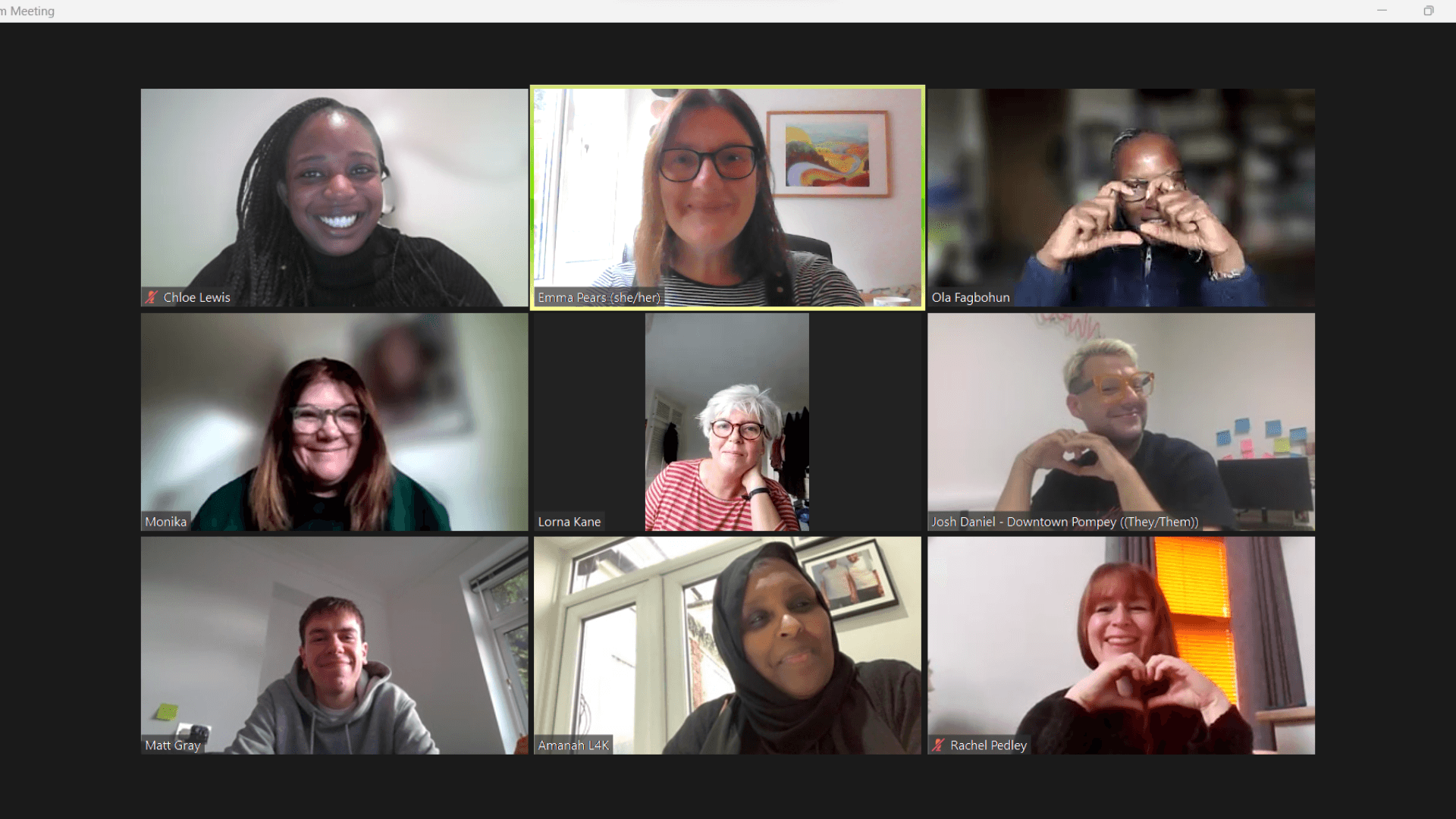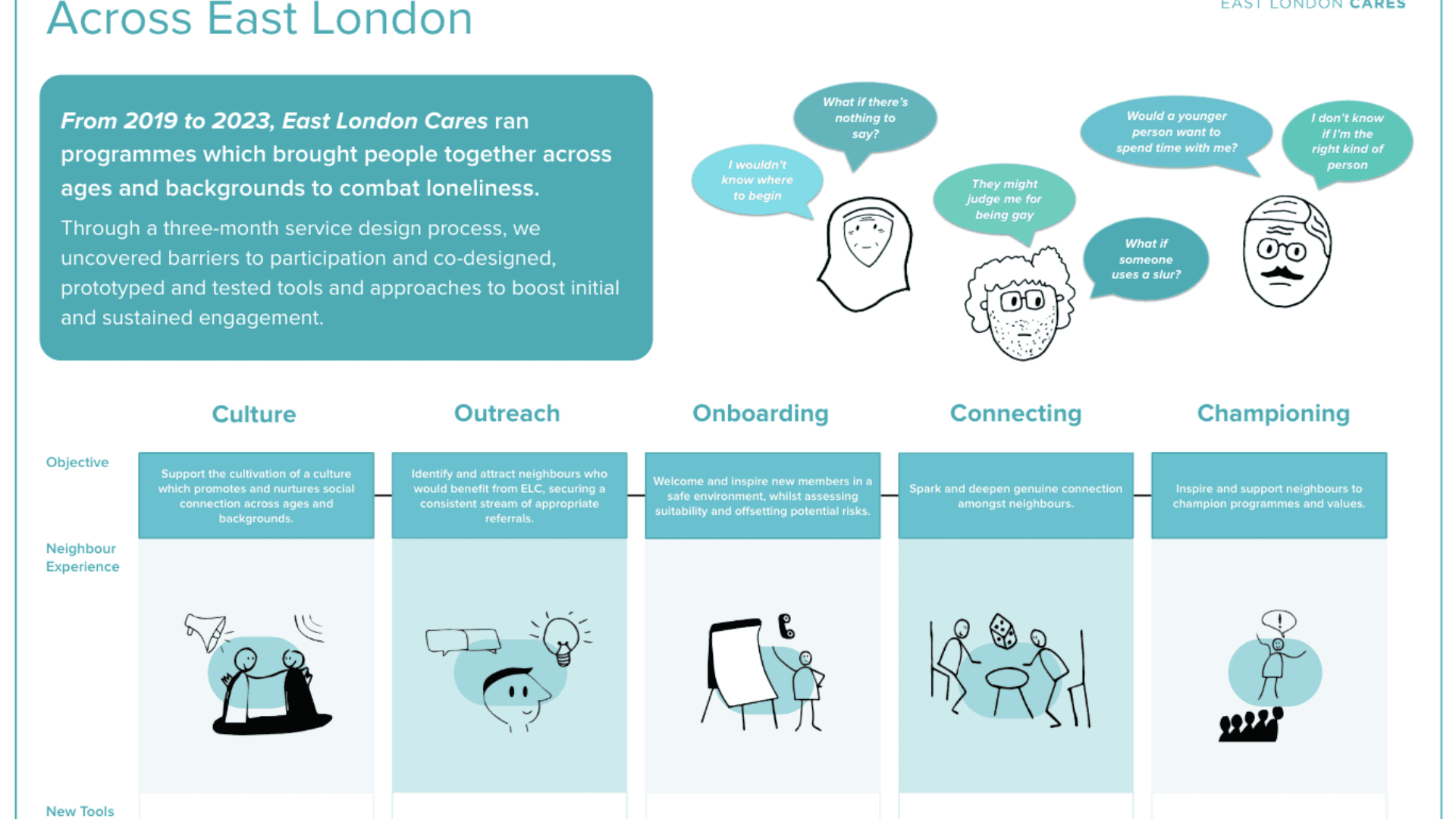
The simplest of starts
Posted by The Cares Family on 16th June 2019
Please note: this post is 69 months old and The Cares Family is no longer operational. This post is shared for information only
I can still remember how it felt. I was a new mum, sitting in cafés around Oldham, whiling away the hours with my baby son. Every now and again, I’d look up to take in the day. And each time I snatched a glance, I noticed how many other people looked as fed up as I felt – not chatting to anyone, distant in a present place. It was that feeling that led me to test my little idea: a designated table where customers could sit if they were happy to talk to other people.
Two years later, I’ve become aware of the pivotal role that cafés play in British society. They are warm on a cold day, they are invariably open, and most people can afford a cup of tea which can last for a good while. They are somewhere you can go alone and not feel self-conscious. Cafés are a backdrop to villages, towns and cities: they sit there nestled amongst the shops, not given much thought. But when you start to unpick ‘the café’, you see there’s more to them than tea and toast.
In a time when libraries are shutting down, post offices and shops have self-service tills and high streets are empty, the good old café is still there, ever present. So why are they so important? Well, they are a place of connection and real human interaction. You can’t underestimate the power of human connection until you don’t have it. Someone taking an order or saying “Morning, love” may seem insignificant, but when you feel otherwise invisible those few words can feel as meaningful as a proper chat. And in those small interactions, as well as the deeper ones, cafés become crucial to the wellbeing of so many.
Today, that little idea has grown into the Chatty Café movement. We work with retail stores all over the country – big chains and small pop-ins. Our aims are to reduce loneliness and to get people talking. But we knew from day one that the word ‘loneliness’ should not appear on any of the publicity: it’s too heavy, too stigmatised. Instead, we have Chatter & Natter tables with the focus on bringing people together. These tables are aimed at everyone – couples; older people; younger people; carers and the people they care for; people with babies and people on their own.
So many of these tables have been places of conversation, of connection and of friendship. 70-year-old Joan and 33-year-old Sarah first met at one of our café tables in Pinner. Joan is a retired teacher and has a 22-year-old son, whose new girlfriend ‘is much nicer than the last one’. Joan and Sarah got chatting over cups of tea. Within a couple of hours, Sarah could have told you more about Joan than she could about most of her work colleagues – because in a café, there’s the time and space for a proper yarn.
Of course, not everyone wants to sit at a Chatter & Natter table. But just seeing people connect can be lovely to observe. And that connection can mean so much to people – people like Emma in Manchester who emailed me to say: “I was waiting for a friend and was sat next to the Chatter & Natter table. I was delighted to hear an elderly local talking to a young lady from out of town, and a man with a baby. They were all smiling and sat there for a good half hour sharing stories. It was wonderful and made me smile inside out.”
In a world full of noise from phones ringing, emails beeping, meetings and all that jazz, those stories and those smiles can lift a person. And for those for whom the noise has stopped, the quiet can feel deafening. Maternity leave; retirement; looking for work; becoming a carer; splitting up from a partner; bereavement – these things happen to everyone, but can make us feel quite invisible. In that time of invisibility, we need to connect with other people, whether for thirty seconds or for longer – because we are social creatures.
Now, our Chatty Café movement is taking root. We have a formal agreement with Costa which means that every one of their stores can easily be part of it. Not every Chatty Café need be the same. On the contrary – they need to be different, in tune with their environment and led by the communities in which they’re based. Sainsbury’s have put their own stamp on the idea, trialling ‘Talking Tables’ in twenty of their supermarket cafés. And universities might one day personalise their tables too – putting out tables ‘for students happy to chat to other students they don’t know yet.’
In an age of complex digital technology, I’m trying to put the Chatty back into real world spaces, so that people can have a bit of company and conversation with their cuppa – if they feel like it. Because sometimes, the most powerful relationships come from the simplest of starts.
Alex Hoskyn is a full time Social Worker on a Learning Disability and Autism team in Oldham. She set up The Chatty Café Scheme in April 2017 which she runs around her work and young son Henry.
This article is part of the pamphlet Finding connection in a disconnected age: stories of community in a time of change, published in partnership with Nesta.


